The following policy outlines MNA’s philosophy regarding demographic data collection, and our commitment to equity and privacy. Collecting data on demographics is essential to understanding the impact of our efforts to center belonging and equity. At the same time, we are committed to ensuring that demographic data remains private.
If you have any questions, please reach out by emailing [email protected], or calling our office at 406-449-3717.
When and why do we ask for demographic information?
MNA asks for demographic information periodically, for individuals and organizations. We ask these questions most frequently in:
- Anonymous feedback forms for trainings and events
- Annual member surveys
- Cohort entry surveys
We believe that in order to center belonging and equity, we have to be able to measure who is impacted, engaged, and involved in our work. As a membership association that serves both individuals and organizations, we are interested in understanding how well we meet the needs of a diverse range of people, nonprofits, and communities. Collecting demographic information assists in deepening this understanding. Understanding more about the composition of organizations and communities can help us direct resources more effectively.
Demographic information we collect adheres to our privacy policy. In aggregate, it will be reported back to members, funders, and in public information in order to stay accountable to our stated goals of inclusion, demonstrate data transparency, and inform organization goals and programs.
BIPOC Centered Organizations
Black, Indigenous, and People of Color led and serving organizations are historically underfunded and under-resourced, here in Montana and elsewhere. Being able to better understand and identify the needs of BIPOC led organizations is integral to centering belonging and equity. Defining BIPOC led organizations, however, is easier said than done. MNA has chosen to use the following definition when inviting organizations to self-identify:
An organization in which (1) at least half of the board of directors identifies as BIPOC, AND (2) whose executive director or half of senior leadership (decision-makers) identify as BIPOC, AND (3) whose mission statement and/or programs aim to predominately serve BIPOC communities.
For additional context on definitions of BIPOC, we recommend this resource from Mass Cultural Council. If you are self-identifying your organization on a form, please do not assume organizational members backgrounds or identities.
Rural Centered Organizations
Rural populations and organizations face barriers to accessing resources and are another target area in ensuring belonging and equity for all Montana organizations. While rural as defined by other agencies might encompass all Montana communities, we define rural centered organizations as:
An organization (1) primarily serving populations outside of the seven largest cities in Montana, OR (2) headquartered outside of the seven largest cities.*
*These cities are Billings, Missoula, Great Falls, Bozeman, Helena, Kalispell, and Butte.
Additional Organizational Characteristics
MNA may also collect information on communities served including ability/disability status, LGBTQIA2S+, and other characteristics to inform our understanding of these organizations.
Self-identifying organization questions may look like this:
Please indicate your organization:
- Our organization is BIPOC centered and led.
- Our organization primarily serves rural communities or is headquartered in a rural area.
- Our organization is led by and serves people living with disabilities.
- Our organization is led by and serves people who identify as LGBTQIA2S+.
Demographic Questions
When asking for individual demographic information, we will often ask for the following:
- Gender
- Race/Ethnicity
- Age
These may be asked in the following format:
Age: Write-in
What is your Gender? (Select All that Apply)
- Woman
- Man
- Cisgender
- Non-Binary/Non-Conforming
- Two-Spirit
- Transgender
- Prefer not to answer
- Prefer to self-describe:
Definitions
Boy/man: A gender identity born out of the gender binary. Boys/men have diverse gender expressions.
Girl/woman: A gender identity born out of the gender binary. Girls/women have diverse gender expressions.
Cisgender: The state of identifying with the sex and/or gender assigned to one at birth.
Non-binary: The state of not identifying with either of the binary sex and/or gender options, i.e., male/female or man/woman. Non-conforming: Another term describing the state of not identifying with either of the binary sex and/or gender options, i.e., male/female or man/woman.
Transgender: The state of not connecting to or identifying with the sex and/or gender assigned to one at birth.
Two-spirit: An identity used by many Indigenous folks that describes their gender and/or sexuality, and role within community.
What is your race/ethnicity? (select all that apply)
- Asian or Asian American
- Black or African American
- Hispanic, Latinx, or Spanish Origin
- Indigenous American or Alaska Native
- Middle Eastern or North African
- Native Hawaiian or Pacific Islander
- White or European
- Multi-Ethnic
- Prefer not to answer
- Prefer to self-describe:

